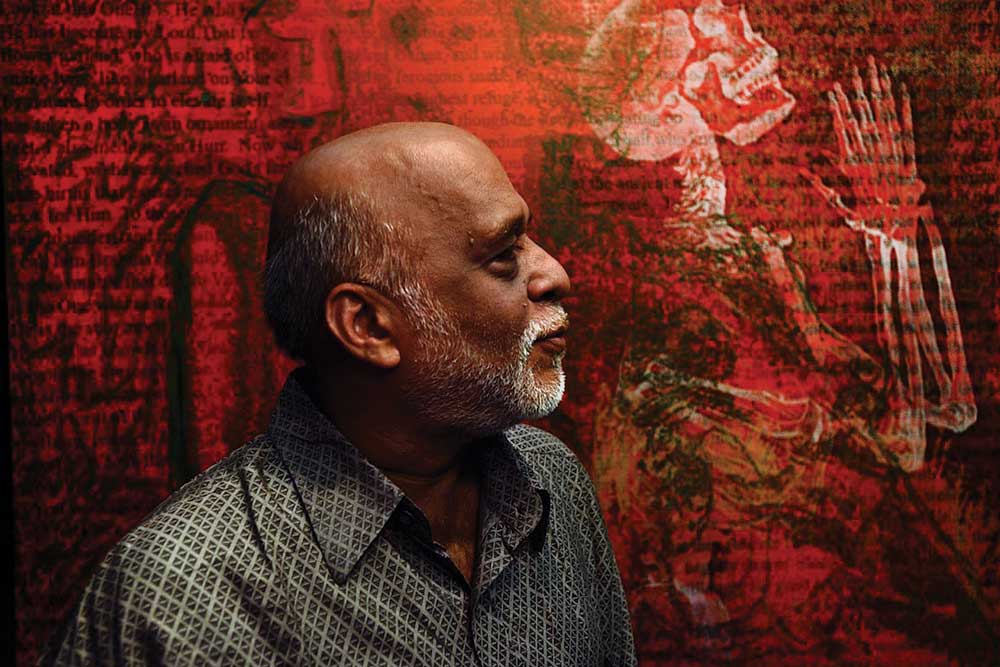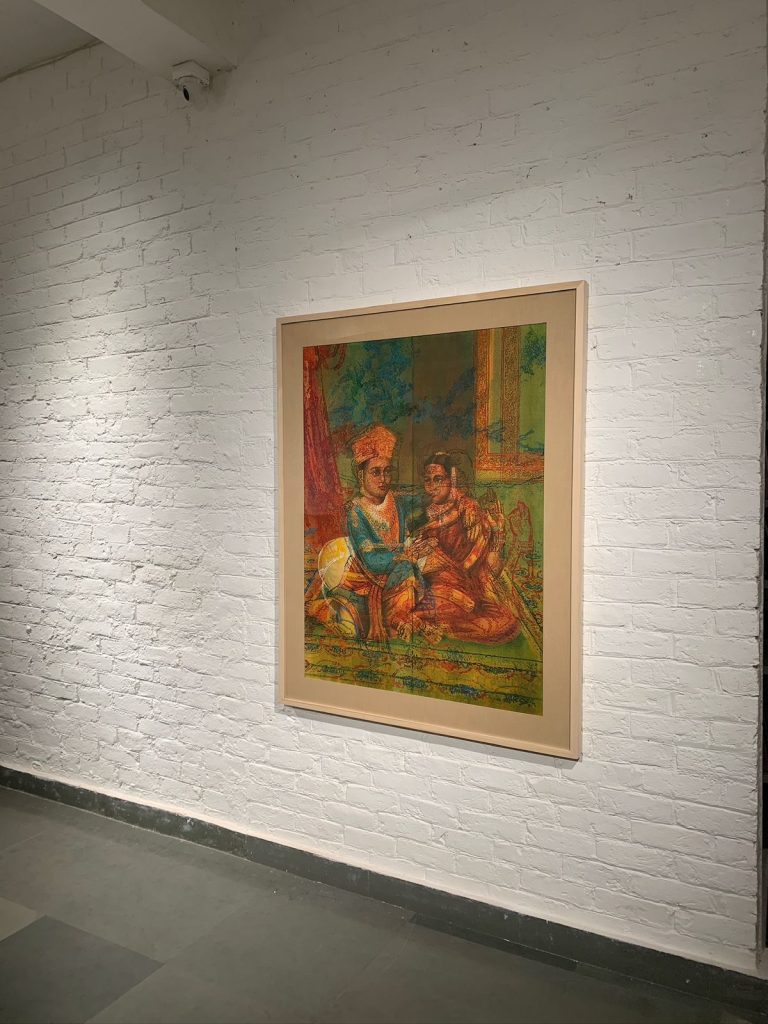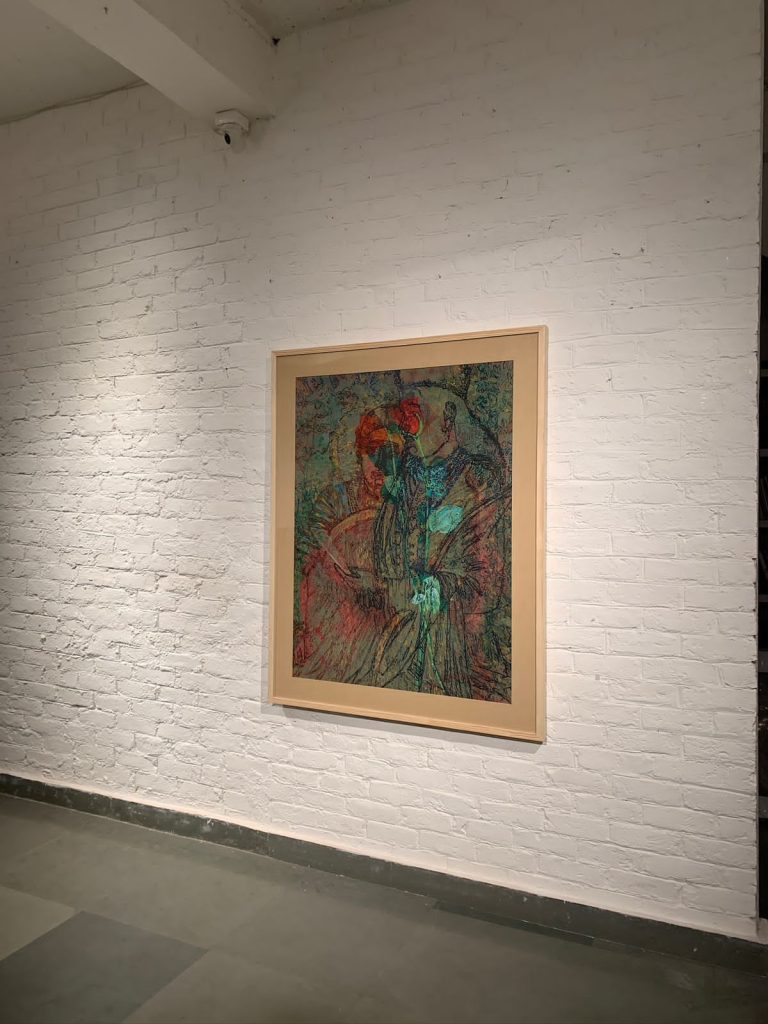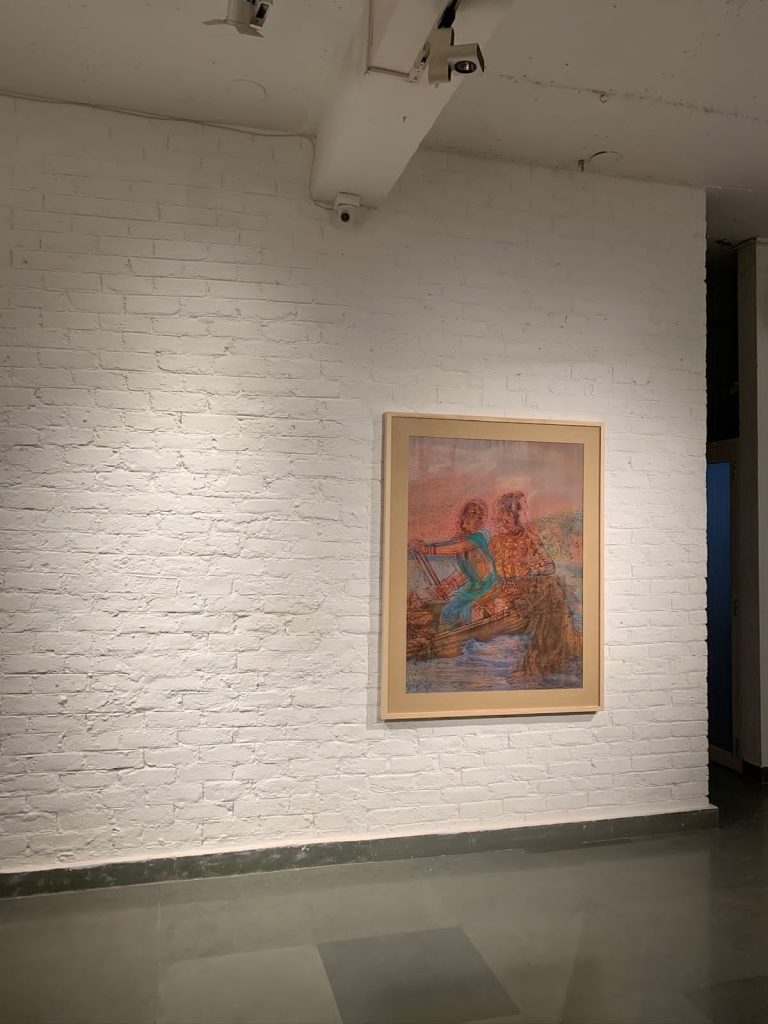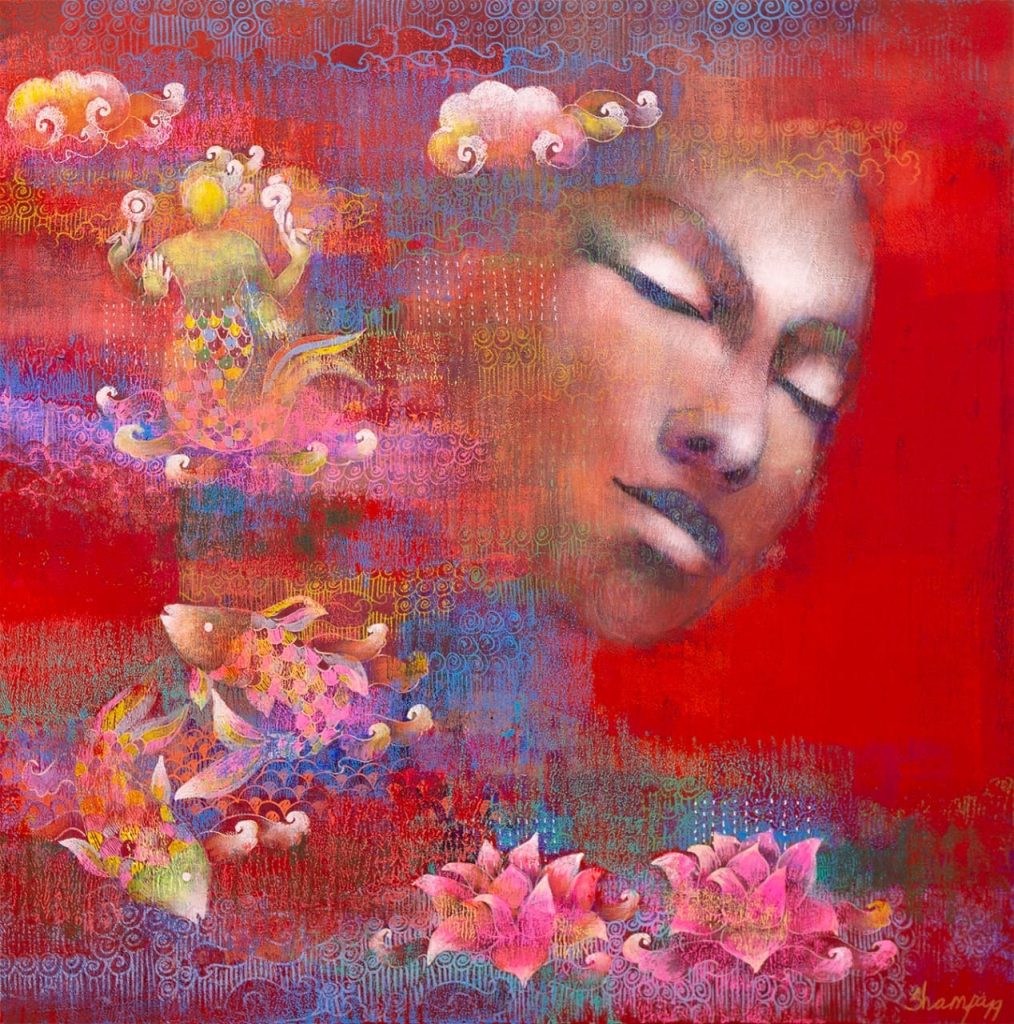Large canvases by renowned artist V. Ramesh, which address modern issues of religion and renunciation, have become a topic of discussion and interest. ‘Love Stories,’ his most recent book, delves into the difficulties of distancing oneself from worldly worries and questions traditional devotional rituals.
Ramesh was born in 1958 in Andhra Pradesh. After receiving his fine arts degree from MS University Baroda, he went on to receive his post-graduation in the same field of study. Among the many honors that Ramesh has been bestowed with are a Junior Fellowship from the Department of Culture, a Sanskriti Award from 1993, and a Senior Fellowship from the same Department.
On his work, the artist says:
“I have been in the recent past relooking at a set of calendar and oleograph prints in my collection. They were all images of amorous couples in romantic postures and yet there was an underlying sense of naïveté in them.
My current body of work titled – ‘Love stories’ derives its inspiration from these works – from their formal simple composition and structure, their use of bright colours as well as the decorative elements that they employed.
Four decades back I had written my dissertation on popular bazaar paintings, so this was a return to that journey, acknowledging these unknown artists who painted these grand works. ‘Love stories’ is a tribute to this style of calendar painting.
The Japanese haiku poet, Nozawa Boncho, talks of the different ways one could have fallen in love. There is a sense of what one ‘COULD HAVE’ done – there is an indecisiveness. Hence to capture this, the works had to have an uncertainty, a lightness of touch. The works have to draw you in immediately with their lightness and lay of subtle and bold colours, just as calendars do.
Some of these works might seem patchy and unfinished, but the works had to be approached in a totally different manner than the way I usually do with my watercolours. I painted love stories but there are twists in the stories.”
Ramesh deviates from traditional methods in his artistic approach, resulting in some works that appear uneven or incomplete. His work represents a dialectic of individuation and differentiation in the modern era, signifying a conversation between material ambiguity and the immanence of transcendence.
Ramesh explores deeper personal and cultural memory in his work, reflecting inwardly in an effort to get beyond corporeality. His canvas combines abstraction, transience, and a quest for the sublime, giving it the appearance of a time-lapsed call of menacing voices throughout space and time.
It is clear from analyzing Ramesh’s work from a modernist standpoint that he defies simple classification and contributes to a critical modernity that questions accepted conceptions of art. The artist’s unique and provocative method is highlighted by the rebellious de-iconization that is inherent in his artworks.
Featured Image Courtesy: Open Magazine
References:
- Threshold Gallery
Read Also:

